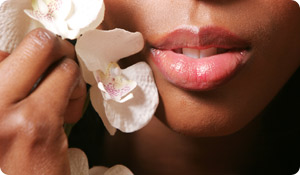
Greasy foods give you acne. Dry skin leads to wrinkles. Sunscreen blocks UV rays. These are just a few of the most common skin-care mythsand by this point, you've probably heard them all. Some of these myths promise overnight acne fixes, while others suggest amazing anti-aging effects. But according to dermatologists, not one of them delivers real results. Read on as we dispel some of the most common skin-care misconceptions.
Myth: Dry skin causes wrinkles.
Reality: It's tempting to think that by keeping your skin hydrated, you can avoid those inevitable lines, furrows, and crow's-feet. But slathering on moisturizer night and day won't prevent wrinkles from forming. Why? Because dry skin isn't the culprit. According to the American Academy of Dermatologists, wrinkles are the result of photoaging, from UV rays; exposure to toxins, such as cigarette smoke; gravity; and the natural loss of collagen, elastin, and fibers over time. That said, creams and lotions may temporarily reduce the appearance of wrinkles by creating a surface layer of moisture.
Myth: Tanning clears up acne.
Reality: According to dermatologists, this is one of the most dangerous beauty myths around. While tanning may initially dry out oily skin, making pimples less noticeable, numerous studies have confirmed that UV exposure does not clear up existing blemishes or prevent new ones from forming. In fact, tanning can intensify facial scars caused by acne and lead to premature aging and even skin cancer
Myth: Greasy foods, chocolate, and a poor diet cause pimples.
Reality: While it used to be thought that greasy foods, chocolate, and sweets worsened or even caused acne, scientists now say that acne has nothing to do with the food we eat or the soda we drink. Good news for those with acne: There's no connection between a person's diet and having acne.
Myth: Indoor tanning is safer than outdoor tanning.
Reality: You may be less likely to burn if you follow the instructions on the tanning bed, but indoor tanning is as dangerous as sunbathing. Exposure to UV rays, not just getting sunburn, can increase your risk of melanoma, the most common form of skin cancer.
Myth: Sunscreen will protect you from skin cancer.
Reality: Not all sunscreens will protect you from skin cancer. Be sure to wear a sunscreen with an SPF of 15 or more. In addition, look carefully for words like broad spectrum and UVA and UVB protection. Many sunscreens protect you from UVB rays only. Recent studies have found skin cancer may be caused by UVA and UVB exposure. The Centers for Disease Control and Prevention (CDC) recommend that you also cover up with long pants and a hat to protect yourself from the sun.
Myth: People with acne don't need to moisturize.
Reality: Although people with acne often have oily skin to begin with, daily face-washing and topical acne treatments can dry out even the oiliest skin. Dry skin is less able to heal itself and be healthy. Moisturizing is an important skin care step for people with every skin type, even those who have acne. Look for oil-free moisturizers.
Myth: Squeezing pimples makes them go away.
Reality: Popping or squeezing your pimples will actually make them take longer to heal and could lead to scarring, according to the American Academy of Dermatology. Instead of popping, wash your face with warm water and soap and apply a cream containing benzoyl peroxide or salicylic acid.





